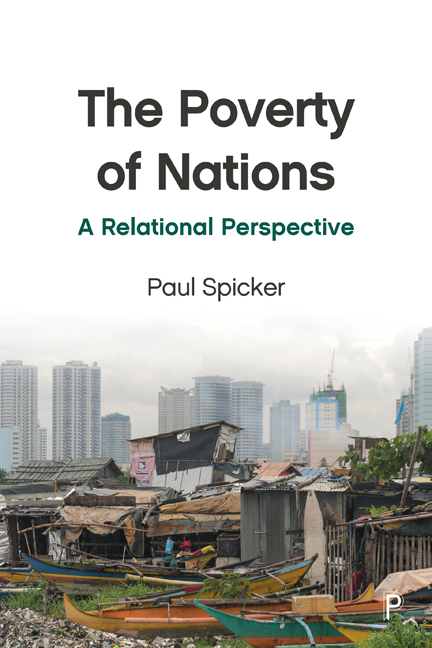10 - Poverty in Rich Countries
Published online by Cambridge University Press: 18 March 2021
Summary
Many commentators have been persuaded by Peter Townsend's argument that the nature and character of poverty differs according to the society where it occurs. The idea of relative deprivation has been interpreted in different ways. For Runciman, it was a sense of deprivation that people experienced because they did not have the goods, amenities and services that other people around them did have. Relative deprivation may mean that deprivation is a reflection of inequality – that people are unable to command resources, like land, housing, education and opportunities, because others with more resources have been able to secure the goods to the exclusion of the poor. Deprivation may be relative because it is socially constructed – because circumstances such as homelessness or food distribution depend on the rules that apply in particular societies.
Poverty in developed countries has some features which are much like poverty in poor countries, and others which are quite unlike. On one hand, there are groups of people who have to face similar privations in rich and poor countries: homeless people who sleep rough and are not allowed into covered areas, people who are malnourished, people who cannot afford medical care. A recent report for the Rowntree Foundation in the UK, supposedly about ‘destitution’ (though that term means something different), estimated that more than half a million people in the UK had gone without at least two essentials in the previous month – shelter, food, heat, light, clothing or basic toiletries. There is an evident difference in scale and proportion between rich and poor countries – there is simply more material deprivation in the global South. On the other hand, the character of the experiences that people undergo seem qualitatively different. Life is different when people have electricity supplies, road transport, water to the home, and postal services. But the reason why poverty looks and feels different in less developed countries is not that the meaning of poverty is different, or even that the norms being applied are shifting; it is that the issues relate to a distinct social system. Development is not a matter only of economics; it represents a much broader and deeper change in human relationships.
- Type
- Chapter
- Information
- The Poverty of NationsA Relational Perspective, pp. 137 - 146Publisher: Bristol University PressPrint publication year: 2020

